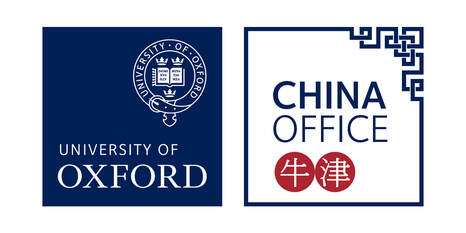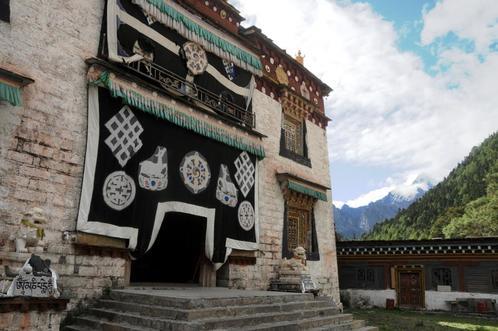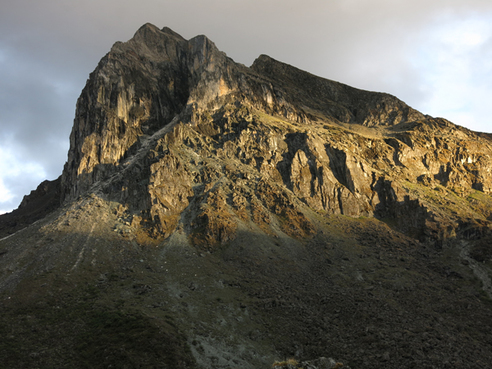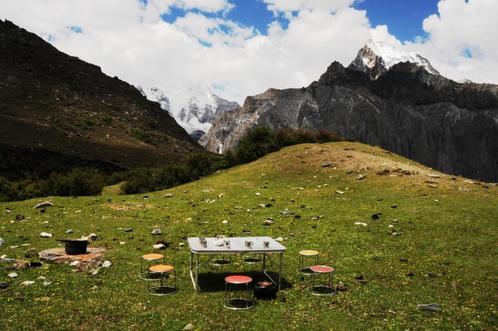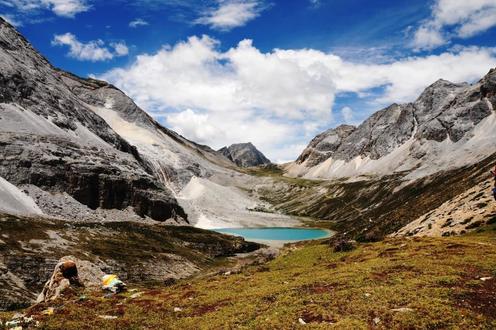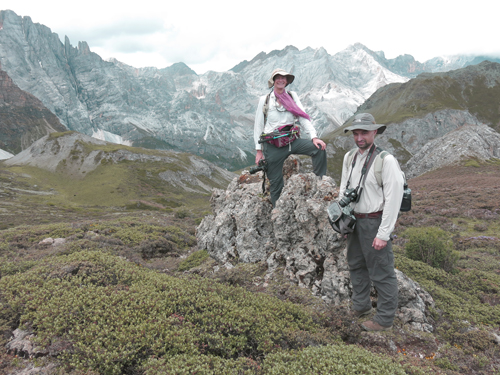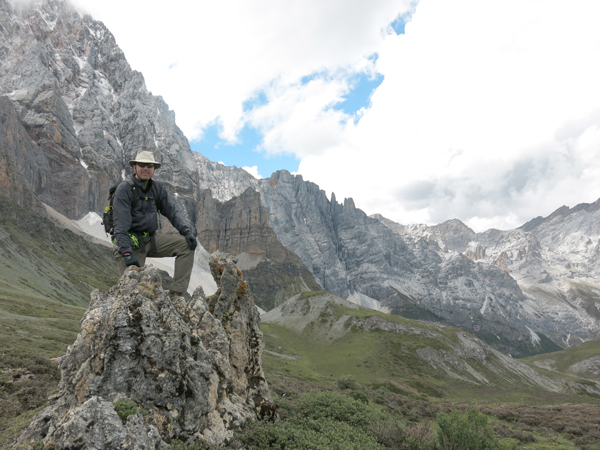Encounters with Alumni from Greater China
The Oxford China Trekkers' Challenge
Oxford’s mission of teaching and learning about China took a small step forward in June 2015 when a group of Oxford graduates and staff successfully completed the “Great Kora” trek and raised £10,000 to support acquisitions for the Bodleian KB Chen China Centre Library. The library is at the heart of the University of Oxford China Centre and its contemplative study space houses a collection of over 45,000 volumes, the first of which was received by Oxford in 1604.
Two days’ drive north of Shangri-La in western China (the journey being something of an adventure in itself!), lies the remote village of Yading, and it is from here, 3,900 metres high in the Ganzi Tibet Autonomous prefecture of Sichuan, that the Great Kora trek begins….
Having arrived at Yading in the early evening of the day before, in time to catch the uplifting and graceful gaze upon us of snowy heights ahead, we started the trek by complementing the nourishment of a warming breakfast with an auspicious visit to the centuries-old Chonggu Monastery nestled in the valley just below Yading.
Then leaving behind the stillness of this ancient meditative refuge, with its flickering yak-butter lamps and painted walls adorned with Buddhist images, the Kora invitingly beckoned us up through lush forested hills and along to a yak herders’ meadow at some 4,600 metres where we camped for the night, watching the sunlight glimmer and fade on the blessed mountain tops above us.
This was a delightful initiation into the Great Kora’s clockwise circular route around three sacred peaks, each about 6,000 metres high, that were sanctified in the 8th Century by the fifth Dalai Lama. These majestic mountains were named after the three bodhisattvas of Compassion, Wisdom and Power (or Chenrezig, Jembayang and Chanadorje) and are still revered by Tibetan Buddhists as emanations of these divine beings, with the belief that undertaking the pilgrimage around them will help purify the soul.
Perhaps eight-days trekking through valleys carpeted with wild flowers and over high passes decked with fluttering prayer flags and Mani stones, picnicking by glistening, glacier-fed lakes and pristine streams under crisp blue skies, all the while gazing at glorious mountainscapes, did indeed clean away some negative karma – if not, then at least some Hong Kong style stress!
These are the “holy mountains of the outlaws” that the botanist Joseph Rock visited in 1928 and then revealed to the world in National Geographic and in many ways it seems that not much has changed since then; certainly the Kora, with its six high passes (the highest being about 4,900m), attracts very few people apart from Tibetans on pilgrimage and a handful of roving yak herders. Although the area around Yading itself, including the spectacular Milk Lake and Five Colour Lake, has recently started to emerge as an exotic destination for mainland visitors, there were no other trekkers to be seen and we had this stunningly beautiful mountain reserve, with its awesome snow-capped summits, largely to ourselves.
One could not help but think that, in the midst of China’s ecologically-challenged vastness, this was indeed the land of some of the legendary “lost horizons” that remain a green and pleasant oasis even today. May the guardian mountains of Mercy, Wisdom and Power help keep it that way!
A big thank you to all those who kindly sponsored us, Your contribution has helped support teaching and research about China at Oxford and the forging of a deeper understanding of China for years to come!
Written by Chris Drake (Exeter 1975), September 2015
The University of Oxford China Centre
Nearly 50 academics in Oxford focus primarily on China, teaching about and undertaking interdisciplinary research regarding various aspects of China's society, politics, economy and environment, as well as its traditional culture, art, history and philosophy. Tackling important questions about China’s role in and contribution to the world, past, present and future, the University of Oxford China Centre’s intellectual and cultural quest is to rethink what China has meant over the last 3,000 years and what it will mean for decades to come. For more information about the University of Oxford China Centre and the opening by HRH Prince William, the Duke of Cambridge, of its new home, the Oxford China Centre Dickson Poon Building.
Nearly 50 academics in Oxford focus primarily on China, teaching about and undertaking interdisciplinary research regarding various aspects of China's society, politics, economy and environment, as well as its traditional culture, art, history and philosophy. Tackling important questions about China’s role in and contribution to the world, past, present and future, the University of Oxford China Centre’s intellectual and cultural quest is to rethink what China has meant over the last 3,000 years and what it will mean for decades to come. For more information about the University of Oxford China Centre and the opening by HRH Prince William, the Duke of Cambridge, of its new home, the Oxford China Centre Dickson Poon Building.
